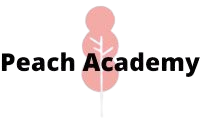Description
Degree Type: Associate of Applied Science (AAS)
Program Length: 2 Years (Full-Time)
Credit Hours Required: 60–66 credit hours
Delivery Mode: Online
Credential Awarded: Associate Degree in Holistic Wellness Coaching
Career Pathways: Wellness Coach, Holistic Health Consultant, Nutrition Advisor, Corporate Wellness Trainer, Mind-Body Practitioner
📚 Program Overview
The Associate Degree in Holistic Wellness Coaching offers a practical and integrative approach to guiding individuals toward optimal health and well-being. This program blends Eastern and Western philosophies, focusing on the mind-body connection, nutrition, lifestyle change, fitness, mindfulness, and emotional balance. Students will learn how to work with clients one-on-one and in groups, promoting holistic practices that enhance health without relying solely on pharmaceutical or invasive medical interventions.
🧠 Learning Objectives
By the end of this program, students will be able to:
-
Conduct comprehensive wellness assessments and develop personalized holistic coaching plans.
-
Apply nutritional, fitness, stress reduction, and lifestyle tools in client-centered coaching.
-
Understand and explain the science and philosophy behind holistic health modalities.
-
Support clients in achieving physical, mental, emotional, and spiritual well-being.
-
Launch or contribute to a wellness-based coaching business or health organization.
📅 Program Structure
🏛️ Core Course List (with Syllabus/Module Breakdown)
Each course includes 3 credit hours unless otherwise noted.
1. Introduction to Holistic Health and Wellness
Description: Explores foundational theories of holistic health, including Ayurveda, Traditional Chinese Medicine, naturopathy, and Western holistic systems.
Modules:
-
History and Evolution of Holistic Health
-
Philosophy of Mind-Body-Spirit Connection
-
Overview of Global Healing Systems
-
The Role of Energy in Healing
-
Introduction to Integrative Medicine
-
Assessing Wellness vs. Illness
2. Principles of Wellness Coaching
Description: Focuses on the coaching process, communication techniques, and motivational interviewing.
Modules:
-
Fundamentals of Coaching and Client Relationship
-
The Psychology of Behavior Change
-
Active Listening and Powerful Questioning
-
Building Coaching Plans and SMART Goals
-
Ethics and Boundaries in Coaching
-
Case Studies in Real-Life Coaching
3. Nutrition for Health and Healing
Description: Covers the fundamentals of holistic nutrition and its use in disease prevention and health promotion.
Modules:
-
Macronutrients and Micronutrients
-
Digestive Wellness and the Gut-Brain Axis
-
Inflammation and Anti-Inflammatory Diets
-
Detoxification and Clean Eating
-
Special Diets (Keto, Paleo, Vegan, etc.)
-
Holistic Supplements and Herbal Nutrition
4. Anatomy and Physiology for Wellness Coaches
Description: Teaches the essential functions of the human body systems relevant to holistic wellness.
Modules:
-
Introduction to the Human Body Systems
-
Musculoskeletal and Cardiovascular Systems
-
Nervous and Endocrine Systems
-
Digestive, Urinary, and Reproductive Systems
-
The Immune and Lymphatic Systems
-
How Lifestyle Affects Physiology
5. Stress Management and Emotional Wellness
Description: Introduces stress management techniques and emotional regulation strategies.
Modules:
-
Understanding Stress and Its Impact
-
The Stress Response System (Fight/Flight)
-
Breathwork, Meditation, and Relaxation Techniques
-
Cognitive Behavioral Tools for Coaches
-
Managing Burnout and Compassion Fatigue
-
Creating Emotional Resilience in Clients
6. Holistic Lifestyle Design and Habit Change
Description: Focuses on building sustainable lifestyle plans tailored to individual client goals.
Modules:
-
Lifestyle Assessment Tools and Strategies
-
Sleep, Hydration, Movement, and Routine
-
Integrating Wellness Practices into Daily Life
-
Digital Detox and Technology Boundaries
-
Time Management and Goal Tracking
-
Coaching for Lasting Habit Change
7. Mindfulness and Meditation Practices
Description: Teaches the principles and benefits of mindfulness-based stress reduction and meditation for holistic coaching.
Modules:
-
Foundations of Mindfulness and Awareness
-
Meditation Traditions and Techniques
-
Mindfulness-Based Stress Reduction (MBSR)
-
Guided Visualization and Body Scans
-
Journaling and Reflective Practices
-
Facilitating Mindfulness for Clients
8. Ethics and Business of Holistic Coaching
Description: Covers business planning, ethics, marketing, and setting up a coaching practice.
Modules:
-
Business Models in Holistic Health
-
Setting Up Your Practice Legally and Financially
-
Marketing and Branding as a Wellness Coach
-
Ethical and Legal Considerations in Coaching
-
Building a Referral Network and Community
-
Client Intake, Record Keeping, and Consent Forms
Capstone Project: Holistic Wellness Coaching Practicum (3–6 credits)
Description: A supervised experience in which students complete a real or simulated coaching engagement and submit a written project.
Deliverables:
-
Case Study on a Coaching Client
-
Recorded Coaching Sessions with Reflection
-
Wellness Coaching Plan and Progress Reports
-
Business Plan for a Holistic Practice
🎓 Elective Course Options (Choose 4)
| Course Title | Description |
|---|---|
| Herbal Remedies and Natural Healing | Introduces herbal safety, use, and preparation methods |
| Yoga and Movement Therapy | Focuses on yoga as a physical and emotional healing tool |
| Energy Healing Basics | Covers Reiki, chakra balancing, and subtle energy fields |
| Functional Fitness and Holistic Exercise | Encourages movement strategies for long-term wellness |
| Holistic Approaches to Women’s Health | Explores women-specific health issues and natural support methods |






Reviews
There are no reviews yet.